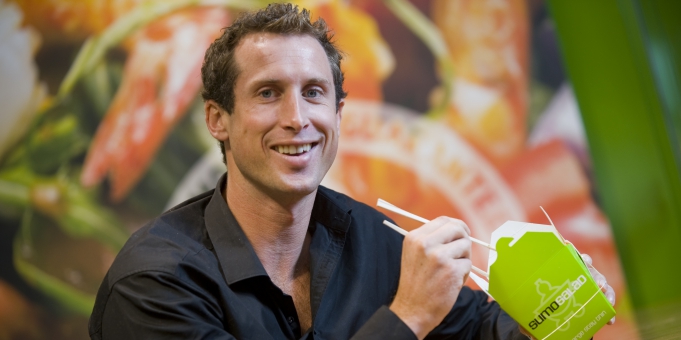
SumoSalad chief executive Luke Baylis.
Australian food retailer SumoSalad has placed itself into voluntary administration in order to give the company some “breathing space” and help the owners restructure the business.
In a statement, the company revealed its management had placed the company into administration as part of a “long-term strategy to restructure and extend the brand”. However they stressed it was business as usual for the SumoSalad group of companies, with its 85 stores continuing to trade over the restructuring period, which is expected to take between 35 and 60 days.
SumoSalad chief executive officer Luke Baylis said in a statement SumoSalad is, in fact, growing in terms of retail sales, but “legacy issues” have presented challenges.
“The business has some legacy issues that has made ongoing trading challenging, despite the strength of the brand and the business model,” he said.
“We now need to restructure the balance sheet to address these issues and give the business the strongest possible footing moving forward.”
The ‘legacy issues” mentioned may allude to the ongoing battle SumoSalad has had with landlords in recent years, with Baylis announcing early last year the company was “putting a freeze” on its numerous food court locations and instead seeking to establish sites in hospitals, universities, and transport hubs.
“We’ve seen a lack of control in these trading environments which leads to shopping centres putting direct competition right in front of you,” Baylis said at the time.
“It’s making it increasingly difficult to differentiate yourself, and is creating a large cannibalisation effect in that trade environment.”
The retailer doubled down on that commitment later that year, placing its leasing entities into administration to force its retail landlords to come to the table on lease negotiations and give the retailer the opportunity to exit the sites if favourable terms couldn’t be worked out.
A month later, the gambit was reportedly paying off, with the retailer supposedly on the “brink” of brokering an agreement with landlords. At the time, administrators of the leasing entities Ferrier Hodgson told Fairfax the company’s strategy of placing the entities into voluntary administration was similar to Chapter 11 bankruptcy processes in the states, where the administration is used as a way to effectively restructure the company.
This process seems now seems to be underway for almost all of the company’s entities, including its main ones such as Sumo Group Australia and its various franchising arms. The voluntary administration does not affect the company’s Western Australia stores.
The company is looking to negotiate with creditors over a Deed of Company Arrangement, which it says will help restructure the business and better formulate its strategy to expand into new retail locations.
Ferrier Hodgson administrators Morgan Kelly and Peter Gothard have been appointed administrators of SumoSalad, and said in a statement they are currently exploring a sale or strategic partnership for the business.
“This is a strong brand with a viable business model. With the support of key stakeholders, we are confident that the business can be restructured successfully,” Kelly said.
“The administration process gives the SumoSalad Group some breathing space, helping to stabilise and restructure the business.”
Whilst the administrators said they were confident in the business’ ability to get back on its feet, they did note SumoSalad had been “struggling” with legacy debts.


COMMENTS
SmartCompany is committed to hosting lively discussions. Help us keep the conversation useful, interesting and welcoming. We aim to publish comments quickly in the interest of promoting robust conversation, but we’re a small team and we deploy filters to protect against legal risk. Occasionally your comment may be held up while it is being reviewed, but we’re working as fast as we can to keep the conversation rolling.
The SmartCompany comment section is members-only content. Please subscribe to leave a comment.
The SmartCompany comment section is members-only content. Please login to leave a comment.